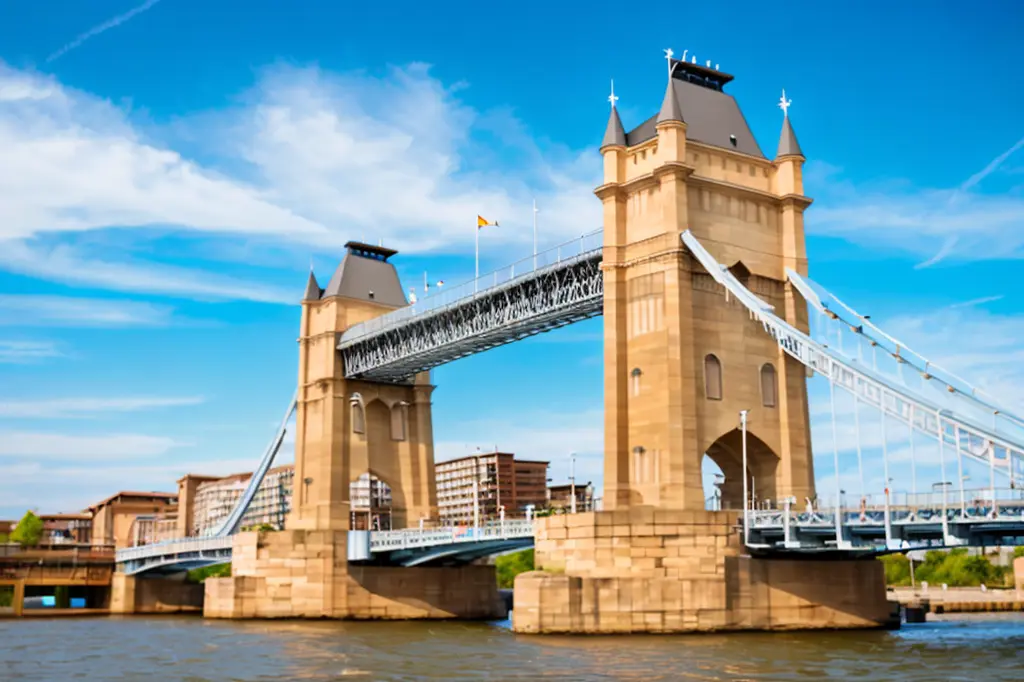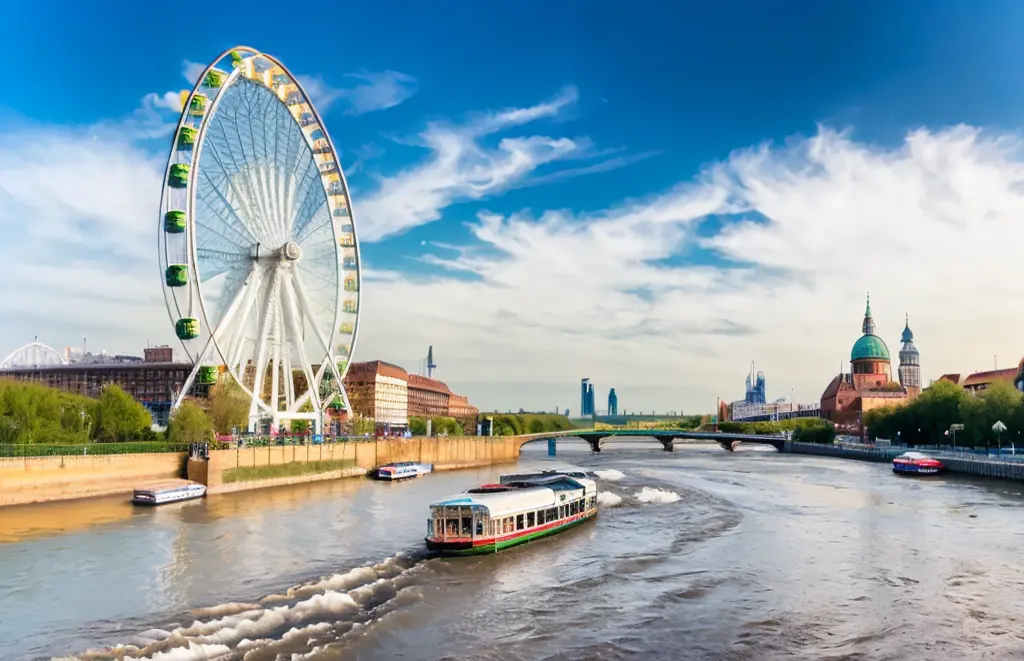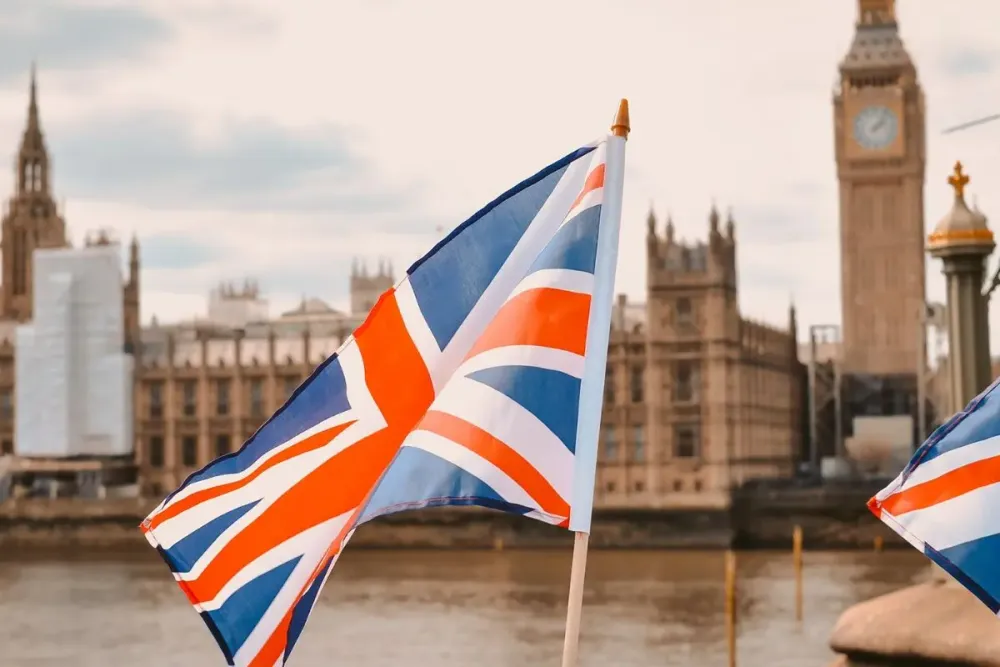Why The Rest Of The World Doesn’t Want To Visit Britain
Keir Starmer and the Labour Party have made bold promises to revitalize the UK across multiple sectors, and tourism, a vital industry still struggling to regain its pre-pandemic momentum, is high on the list. With many global destinations surpassing the UK in both visitor numbers and tourist satisfaction, the question arises: what’s holding Britain back- and how can it bounce back stronger?
Recent United Nations World Tourism Organization (UNWTO) data shows that as of early 2024, UK tourism has yet to return to its pre-pandemic heights. International visitor numbers remain 5.6% below 2019 levels, and the UK ranks lower among European destinations than countries like France, Spain, Turkey, Greece, the Netherlands, and even Croatia. That said, it has performed marginally better than Italy and Germany in specific recovery metrics such as inbound spending growth.
Data from VisitBritain, based on the UK Office for National Statistics (ONS) and the International Passenger Survey, confirms this ongoing challenge. The UK welcomed approximately 37.96 million international visitors in 2023, down 7.1% from 2019. This has, in turn, caused international tourism spending to drop 10% to £31.1 billion
While visitor visas saw a notable rebound, with 1.96 million visas issued in 2023, up 40% from 2022, this figure still trails pre-COVID benchmarks by nearly 19%.
Understanding the Decline: More Than Just a Pandemic Hangover
The slower recovery in UK tourism isn't simply a matter of time—it reflects deeper, structural issues that predate the pandemic and were exacerbated by it.
One major factor is price competitiveness. The World Economic Forum’s Travel & Tourism Development Index ranks the UK among the least affordable destinations in Europe. High costs across the board—from basic accommodation and transportation to food and entry fees—can deter travelers, especially those looking for value or traveling with families.
The global cost-of-living crisis has only sharpened this perception. Tourists today are making more calculated decisions about where their money stretches furthest, and destinations like Portugal, Turkey, and certain Balkan countries often win out over the UK in this regard.
Even for those with a cultural or emotional attachment to Britain, the value proposition is increasingly difficult to justify.

Perception Problems: News Headlines vs. Tourist Experience
Beyond price, perception plays a critical role in travel decisions. Stories about polluted beaches, transport disruptions, and public safety concerns regularly make headlines, often without a counterbalance showcasing positive visitor experiences. Although many of these issues are not unique to the UK, the media framing can erode consumer confidence abroad.
Despite this, UKinbound CEO Joss Croft has noted stronger booking numbers for summer 2024, suggesting underlying interest remains. However, the forward outlook is mixed, with some sectors reporting weakened confidence. As Croft says, travel depends on three essential ingredients: means, money, and motivation—and right now, Britain seems to be faltering on all three.
Barriers for EU Visitors: Bureaucracy Replacing Simplicity
The UK’s exit from the European Union introduced new hurdles that disproportionately impact short-haul travelers from Europe—historically the country’s most reliable tourism segment.
EU nationals must now travel with a passport rather than an ID card, and new costs such as the Electronic Travel Authorization (ETA)—set at £10—will become mandatory for visa-exempt travelers by the end of 2024. While seemingly modest, these changes create psychological and logistical barriers, particularly for younger travelers, students, and budget-conscious visitors.
The European Travel Information and Authorization System (ETIAS), launching in mid-2025, will mirror this complexity on the EU side. It’s an attempt at reciprocity, but for visitors who once took seamless intra-European travel for granted, the new border controls may tip the scales in favor of more accessible destinations.
Interestingly, our recent piece on Europe’s most unwelcoming destinations for British tourists underscores how both sides of the Channel increasingly place bureaucratic burdens on leisure travel—perhaps a reflection of broader geopolitical tensions.

The Image Challenge: Is Britain Still Seen as Friendly?
Perception data paints a sobering picture. The Anholt-Ipsos Nation Brands Index reveals a sharp decline in how “welcoming” the UK is perceived internationally. In key areas like local friendliness, ease of entry, and hassle-free navigation, Britain has been outpaced by both neighboring European countries and emerging Middle Eastern destinations like the UAE and Qatar.
According to Patricia Yates, CEO of VisitBritain, although the UK has long traded on its history, literature, and regal associations, natural beauty and hospitality are perceived as weaker points. And in today’s experiential tourism era—where travelers seek warm, memorable interactions—this matters more than ever.
Policy Gaps and Missed Opportunities
The UK government’s 2021 Tourism Recovery Plan set out ambitious goals for post-COVID recovery, but 2024 data shows that targets are still unmet. One major sticking point remains the abolition of tax-free shopping for international visitors.
As Richard Toomer from the Tourism Alliance argues, this policy change places the UK at a significant disadvantage compared to destinations like France or Italy, where international travelers can still claim VAT refunds on retail purchases—a huge incentive for high-spending tourists.
Visa policies further compound the issue. Applying for a UK visitor visa is both costlier and more complex than obtaining a Schengen visa, especially for tourists from Africa, Asia, and the Middle East. This alone can reroute entire itineraries toward continental Europe.
Toomer advocates for a Sustainable Tourism Growth Plan that is not only aspirational but backed by smart, visitor-focused policies. If executed correctly, such a plan could reposition the UK as a competitive player in global tourism once more.
A Budget That Doesn’t Match the Ambition
Despite tourism’s huge economic potential—every £1 spent on VisitBritain marketing returns £21 in visitor spend—the agency’s annual marketing budget sits at just £18 million. In stark contrast, Tourism Ireland’s budget tops €80 million (£67 million).
One creative proposal floating through policy circles is the allocation of ETA revenue toward marketing and infrastructure. A mere £1 from each ETA issued could significantly bolster Britain’s global visibility and make meaningful improvements in visitor experience.
Communications Strategy: Avoiding the “Broken Britain” Trap
While the temptation to acknowledge systemic struggles can support reform narratives, leaning too heavily on the idea of a “broken Britain” risks alienating potential visitors. Smart messaging should focus on what’s improving, what remains world-class (museums, culture, countryside), and how Britain is becoming more accessible and welcoming post-pandemic.
This shift in tone could help bridge the widening perception gap between Britain’s self-image and how the rest of the world views it.
What the Rest of the World Thinks of Britain
Australia
In Australia, Britain retains a nostalgic allure. From Royal Family updates to the prestige of Wimbledon and Premier League football, cultural connections remain strong. Yet, with rising living costs at home and fewer long-haul flight deals than pre-2020, many Australians now view the UK as an aspirational but pricey destination.
Still, the Youth Mobility Scheme, simplified post-Brexit, offers easier pathways for young Australians to live and work in the UK. Many use a stint in London as a springboard to explore Europe, combining professional and personal growth in one extended adventure.
Greece
Greek travelers are charmed by the order and politeness they associate with Britain—from queuing etiquette to customer service. Cultural touchstones like Sherlock Holmes and Harrods shopping are enduringly attractive.
However, the high cost of essentials in the UK can deter Greek families from planning longer holidays. Interestingly, many overlook issues like crime, focusing more on affordability and, occasionally, the weather.
USA
Americans have long been drawn to the UK’s history and heritage—think Windsor Castle, the British Museum, and Shakespeare’s Globe. However, changing travel trends in 2024 reveal a shift. Destinations like Japan and Iceland have gained immense popularity, aided by direct flights and rich social media exposure.
Many Americans now prioritize novelty and escapism over-familiarity. That said, cities like Edinburgh and Bath still hold strong appeal for culture-focused U.S. travelers, especially those on heritage tours.
Germany
Germans generally view the UK favorably, praising its cultural institutions and green landscapes. However, Brexit-related complications have dampened enthusiasm. The added layers of travel paperwork and less favorable exchange rates make weekend getaways less appealing than before.
Transport strikes and infrastructure issues in the UK are known, but German travelers—used to similar disruptions at home—tend to downplay them. The British weather remains a deterrent, but not a deal-breaker.
France
French tourists often mix humor with critique when discussing Britain—jokes about British cuisine and rain still circulate widely. However, the key concern now is border complexity. What was once a seamless trip across the Channel now requires more documentation and longer processing times.
The nostalgia for spontaneous weekend trips to London has faded somewhat. Many now choose Belgium, Spain, or Italy instead—destinations that offer simplicity alongside sun and gastronomy.
Final Thoughts
While Britain remains an iconic destination, its tourism sector is at a crossroads. Structural issues, policy oversights, and outdated perceptions are weighing down recovery efforts—but the potential is still vast. With smart investments, friendlier policies, and consistent global marketing, the UK could regain its place as a world-leading tourist magnet.
A renewed focus on affordability, ease of access, and warm hospitality may be the key to turning things around. After all, Britain has never lacked stories worth discovering—it just needs to make the invitation more compelling.
Planning to visit anyway? Karta offers good deals on UK vacation rentals for you.
FAQ
1. What is the UK known for in tourism?
The UK is renowned for its rich history, royal landmarks, literary heritage, and world-class museums. London, Edinburgh, and the Lake District are major tourist draws.
2. Is the UK worth visiting in 2025?
Yes, especially with the return of major festivals, improved visitor infrastructure, and new visa facilitation efforts. Summer 2025 is expected to see a tourism rebound.
3. UK travel restrictions 2024: what to know?
Most COVID-related restrictions have ended. However, EU travelers now need passports (not ID cards), and the ETA system becomes mandatory in late 2024.





